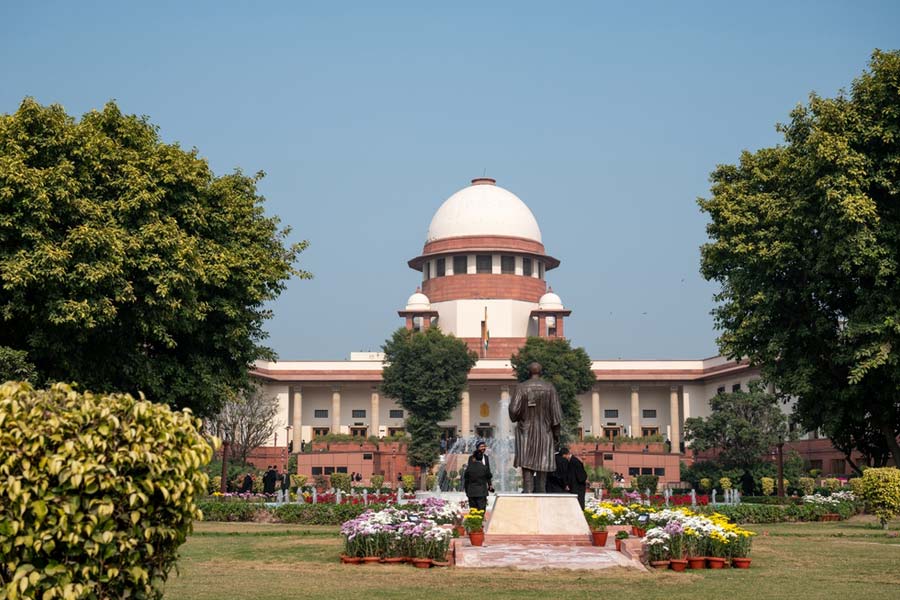The Supreme Court on Monday issued notice to the Centre on a plea which seeks to exclude the "creamy layer" within the Scheduled Caste and Scheduled Tribe from enjoying the benefits of reservation in government jobs and education, and to extend the benefits only to the economically backward people within these communities.
While seeking the Centre’s response on the PIL filed by Yamuna Prasad and Ramashankar Prajapati, a bench of Justices Surya Kant and Joymalya Bagchi told the petitioners’ counsel, advocate Reena N. Singh, that the matter may face opposition from various quarters.
Keeping in mind the “sensitivity of the reservation policy,” and divergent views “you will face a lot of opposition, it (issue) should be dealt with carefully,” the bench orally observed.
According to the petitioners, the reservation framework was initially introduced to uplift historically disadvantaged communities. However, the current system disproportionately benefits people belonging to relatively well-off economic strata and high social status backgrounds within these groups.
“In this context, this petition calls for an urgent need to integrate economic criteria into the reservation policy to ensure that benefits are conferred upon those who genuinely require state support. This reform proposal does not seek to abolish or undermine caste-based reservations but rather to refine them to serve their intended purpose more effectively,” it said.
“By introducing an income-based prioritisation mechanism within the SC-ST reservations, the proposed framework aims to prioritise opportunities for the most disadvantaged individuals amongst the SC-ST communities,” the petitioners pleaded.
It was submitted that over the past 75 years, reservations have disproportionately benefited a select few within the reserved categories, creating intra-community economic disparities and failing to achieve holistic uplift.
“A small percentage of families within these communities have gained access to quality education, stable employment and economic mobility, thereby securing a generational advantage,” the petitioners said.
They added: “The lack of an economic criteria within SC/ST reservations has enabled certain families to monopolise benefits over generations, while those in need struggle to break free from the cycle of poverty.
“...A balanced approach must be adopted, integrating an economic criteria within the existing framework. A system similar to the ‘creamy layer’ concept in OBC reservations should be introduced for SC/ST reservations. This would ensure that only the genuinely disadvantaged sections of these communities continue to receive state support... A mechanism should be established to conduct annual assessments of the economic progress of families availing reservation benefits,” they pleaded.









